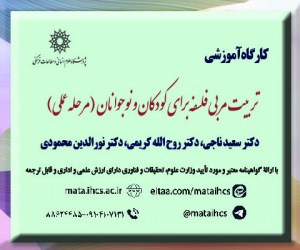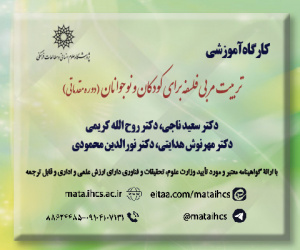مقایسه اثربخشی دو رویکرد پذیرش و تعهد و شناخت درمانی مبتنی بر ذهن آگاهی برکیفیت زندگی و تاب آوری همسران جانبازان دارای استرس پس از سانحه (PTSD) ناشی از جنگ
آرشیو
چکیده
مقدمه: خانواده جانبازان به ویژه همسران آنها با گذشت سال ها از جنگ تحمیلی، هنوز عوارض ناشی از آن را تجربه می کنند که زندگی این افراد را با آسیب های روحی و روانی همراه کرده است. هدف این ، بررسی اثربخشی دو رویکرد پذیرش و تعهد و شناخت درمانی مبتنی بر ذهن آگاهی بر تاب آوری و کیفیت زندگی همسران جانبازان دارای استرس پس از سانحه (PTSD) است. روش: در این پژوهش نیمه تجربی، از پیش آزمون و پس آزمون برای دو گروه آزمایش و کنترل استفاده شده و مرحله پیگیری، پس از یک ماه به اجرا درآمد. جامعه آماری شامل کلیه همسران جانبازان اعصاب و روان دارای استرس پس از سانحه شهرستان کوهدشت بودند که 13 نفر در گروه پذیرش و تعهد، 13 نفر در گروه شناخت درمانی مبتنی بر ذهن آگاهی و 15 نفر در گروه گواه به صورت تصادفی جایگزین شدند. پرسشنامه های کیفیت زندگی سازمان بهداشت جهانی و مقیاس تاب آوری کانر و دیویدس ون به عنوان ابزار جمع آوری داده ها استفاده شد. نتایج: یافته های این پژوهش نشان داد که درمان پذیرش و تعهد (ACT) و شناخت درمانی مبتنی بر ذهن آگاهی (MBCT) منجر به افزایش تاب آوری و کیفیت زندگی در همسران جانبازان داری (PTSD) شد (01/0>p). نتایج پیگیری یک ماهه نیز نشان داد که اثربخشی باقی مانده است (01/0>p). در مقایسه دو رویکرد، درمان ACT اثربخش تر از درمان MBCT گزارش شد. بحث: مداخلات آموزش رویکرد پذیرش و تعهد و شناخت درمانی مبتنی بر ذهن آگاهی بر بالابردن کیفیت زندگی و تاب آوری همسران جانبازان دارای اختلال استرس پس از سانحه (PTSD) مؤثر استA Comparison of the Effectiveness of Acceptance and Commitment Therapy and Mindfulness-Based Cognitive Therapy Approaches on the Quality of Life and Resiliency among Disabled Veterans’ Wives with War-Related Posttraumatic Stress Disorder (PTSD)
Introduction: Although war finished years ago, disabled veterans’ families, especially their wives, are still suffering from a lot of physical and psychological problems, which can seriously affect their well-being. The present study aimed to examine the effect of acceptance and commitment therapy (ACT) approach and mindfulness-based cognitive therapy (MBCT) approach on the resiliency and quality of life among disabled veterans’ wives with PTSD. Method: In the present semi-experimental study, a pretest and a posttest were administered to the experimental and control groups, and the follow-up phase was carried out a month later. The statistical population included all the psychiatric disabled veterans’ wives with PTSD in Kuhdasht, Iran. A sample of 51 subjects was selected and randomly divided into 3 group .13 individuals were randomly assigned into the acceptance and commitment therapy group, 13 into the mindfulness-based cognitive therapy group, and 15 into the control group. WHOQOL- BREF and CD-RISC questionnaires were employed as the data collection instruments. Results: The results of the present study revealed that ACT and MBCT approaches enhanced the participants’ scores in resiliency and quality of life (p<0.01). The results of one-month follow-up study further indicated that the effect remained unchanged (p<0.01). Both interventions were affective and a comparison of the two approaches indicated that ACT has more efficiency. Discussion: The results of the present study showed that both ACT and MBCT approaches enhanced resiliency and quality of life among the disabled veterans’ wives with PTSD.



